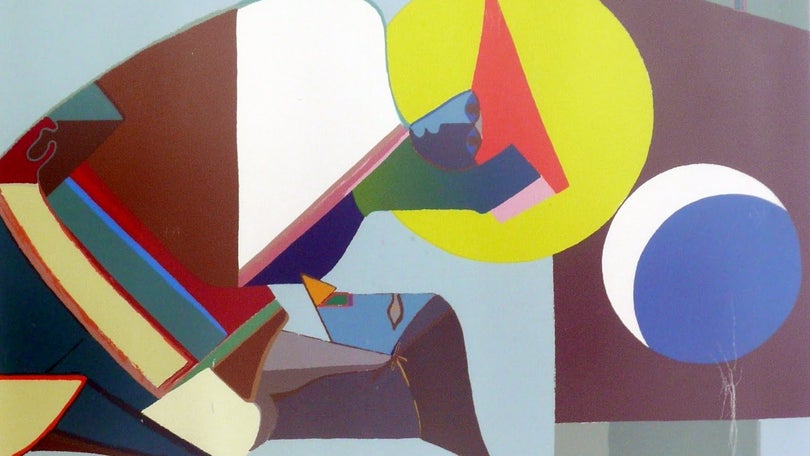Hand-Me-Down Refugee
Art Coelho
I know the lost words by heart
because my blood cannot sing of them,
and if you go on searching for them in vain,
in a wasteland of pain, in trying to remember all
the footfalls down narrow lanes to that other shore,
to the place where the women carry hand-woven baskets
on their heads, and the men piece back together
their fishing nets while sitting in the sun;
yes, everything in the forgotten past is
a hand-me-down refugee that lasts and lasts.
I’ve been shadowed for too long
without a language that brings a song;
lost forever to that old lean pilgrimage
away from black rocks and old windmills turning,
canvas pushed by the wind in the channels
between the islands, among
the flour being ground up for bread:
it is yesterday gone dead,
sucked up in a long ago steamer crossing,
denied to us every which a way
because Grandma had a dream at seventeen;
she stole away in a horse cart for Angra.
I don’t blame you for slipping away
in the middle of the night, looking
at the stars as you would a sweet promise,
for giving me a new birth in this land,
for the courage it took, for the easier life,
for the things we wouldn’t ever have there;
your quest is honored, is fulfilled
in your marriage here, in nine daughters
and two sons born in the San Joaquin Valley.
But a grandson wonders with a poet’s longing
the sacrifice that ties my hands behind my back
and the cultural tongue smitten black, unused
in these new kitchens in California, in kids growing up
without knowing those familiar oxen plowing, planting seeds,
those kale patches well-attended, those rich gardens-
they were another kind of heritage to that Terceira pride.
It stirs my blood to piece back together again that
abandoned torch that took away more than Azorean sounds;
it was said too easily this thing called "immigration",
this denial of birthright without a choice of our own.
We hear whalers shout, but we want the sea smells too;
our desire wants the fishing boats, the catch shining silver
across the dock planks, this unloading of common wealth.
How much can we get back by mere travel,
by walking down cobbled streets in Biscoitos,
and in Santa Luzia, drinking the red wine there;
and in Silveria where the mysterious waters wait,
and Fajã da Caldeira do Santo Cristo-
who has seen that trail from Cubres, who has heard
the beat of the heart ask for more than a few hours
looking through the broken tiles of the Lainhas roof
towards the sky, beyond the rubble where the music
begs harder each day for restoration, for the times
yet to be lived, yet to be revealed when we will eat
the special clams in this lake, and harvest
the secrets of the past that make us ache with envy.
Is their broken English enough of a gift to us,
the slamming shut of Ellis Island gates,
is that the cold reality that robbed our fortune
in azulejos patterns, church bells ringing in the village,
is that the bunches of grapes in the vineyard
we did not stomp with our own two feet,
is that the ripe juice we cannot see
running down our calves to our ankles,
is that the greenhorn we are becoming now because
they grin back at us our meager residue
Tercerinese, Piconese, Jorgenese bloodlines?
I am in the shadow of these nine islands,
a mantel of black rocks surrounding
small pastured greens I’ve chosen as my sanctuary.
I’m coming back to the small fishing boats
I love to watch move across now familiar waves.
I don’t have to own them to read between their names
on the hulls-it’s my country too, in yearning I have claimed it.
So what if now I carry the burdens of a stranger here;
each time I come I feel my soul surge for more intimacy.
Nothing is foreign in my heart.
Did I not inherit my mother’s eyes?
Don’t I still eat the Portuguese donuts in Montana?
Hasn’t the recipe for a lost life been found in crumbs
in all this stumbling for my Iberian dictionary of spirit.
What I see is more than an image of yesterday,
my grandfather’s hands are as real as the goat herd
climbing up the hill, the bell sound tinkling my arrival.
I won’t remain a slave buried by a dim awakening
where a thin mist has lost sight of my cradle,
where a thick human fog has tried to erase
the growing pride I have in my cousins here.
I will slowly be reunited by a slow
hortênsia-flanked ride down an ancient donkey path.
I’m running towards a new steamer brother, an airplane ship
chalking up Atlantic tickets where my last breath will laugh,
where my missing memories have learned how to swim
towards a long-awaited feast out of a treasured past.
Art Coelho poet, novelist, painter, and 7 Buffaloes Press Publisher (Rural & Working Class Literature), lives in Big Timber, Montana. His grandparents emigrated from the Azores. Art is currently writing two Diaspora novels, The Dream and the Wooden Shoe and The Americanization of Antônio. Two of Coelho’s cataloged exhibitions, "To The Azores and Back Again: In Poetry & Painting" and "Twice Removed: An Exhibit of Portuguese-American Artists" (April 11-June 27, 2009), shown at the Boston Public Library, received a NEH grant. Art Coelho’s ten-year gypsy period included a work, "My Own Brand," in the Macmillan anthology Traveling America with Today’s Poets. A short story, "My First Kill" was selected for Fiction 100, a Prentice-Hall university textbook. Coelho won the Pushcart Prize in 1976 with the poem "Like a Good Unknown Poet."
Published in InterDISCIPLINARY Journal of Portuguese Diaspora Studies Vol. 2 (2013): 133-136.




